It was my first time back in Seoul in over a decade, and I enjoyed the South Korean capital city.
Springtime In Seoul, South Korea – A Photo Essay
You might recall my purpose of visiting Seoul was to fly Korean Air…which of course never worked out. That left me in a bit of a waiting game while there, constantly checking for both Korean Air and alternate routes home. But in between such checks, I did manage to walk around a bit in the Gangham District where the Park Hyatt is.
It’s a little sterile, but seemed to me to be a very livable city.
Most people still wear masks here…something that predates the pandemic but the pandemic only cemented into local culture. I simply cannot understand the marginal benefit of wearing masks outside
Finally, I had wanted to return to the DMZ, but tours to the Joint Security Area (the blue buildings that straddle both nations) have been suspended since July 2023 when delusional American soldier Travis King tried to defect to North Korea from that tense border. Thankfully, I was able to do one of these tours in 2012, but it has been a long time…
I’d love to visit Pyongyang one day under a new government…but for now Seoul is probably about as close as I will get.
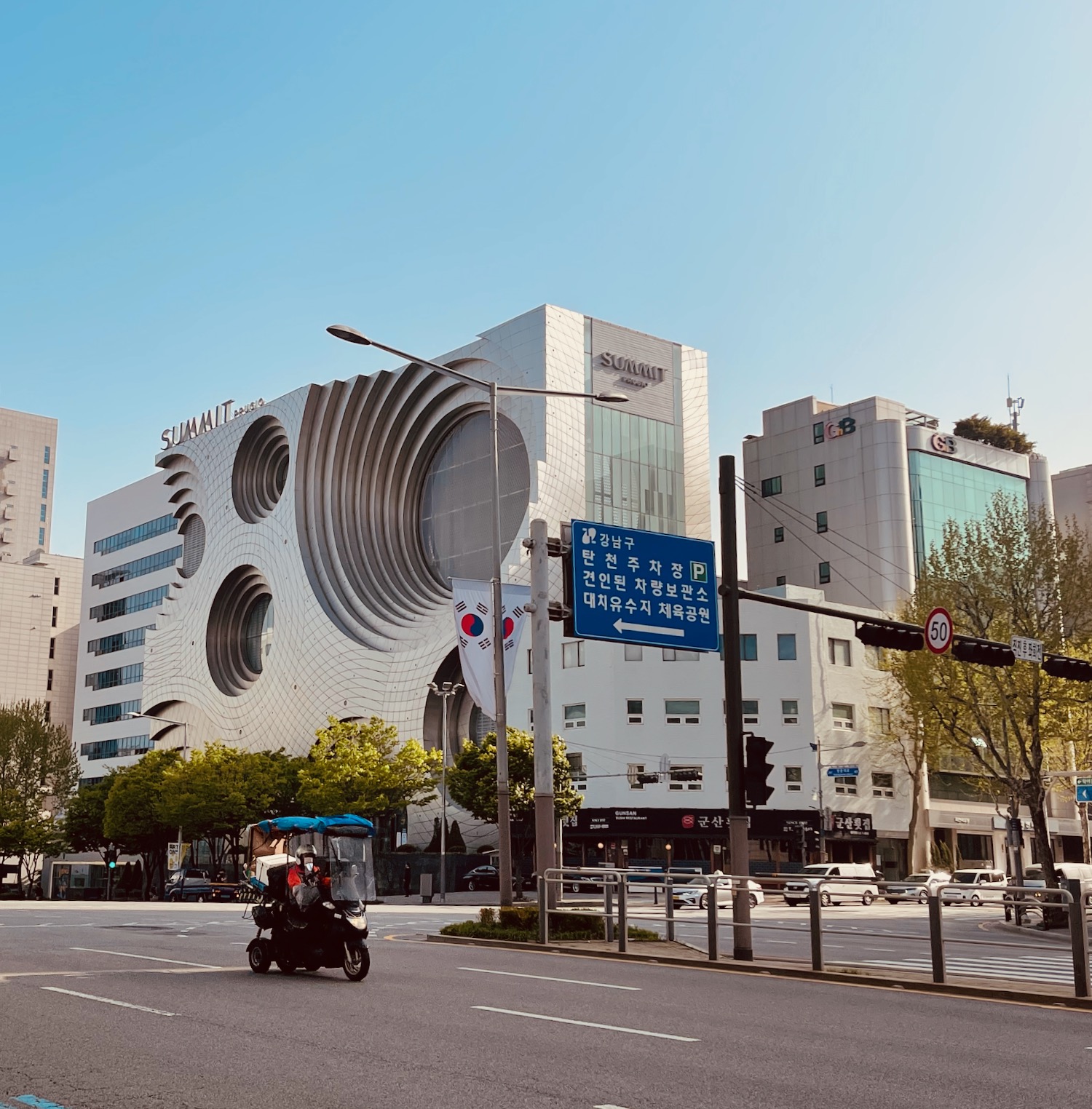
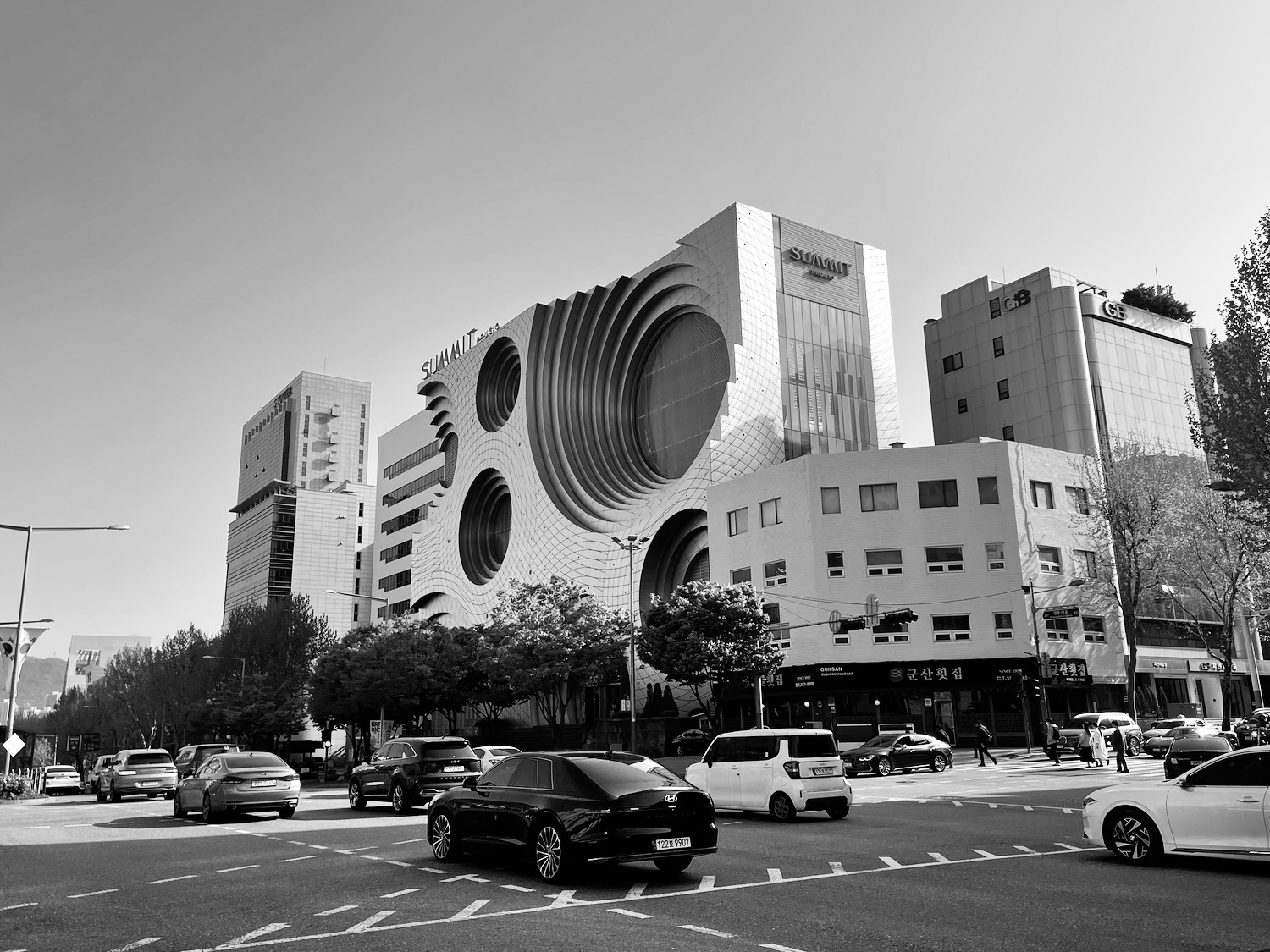
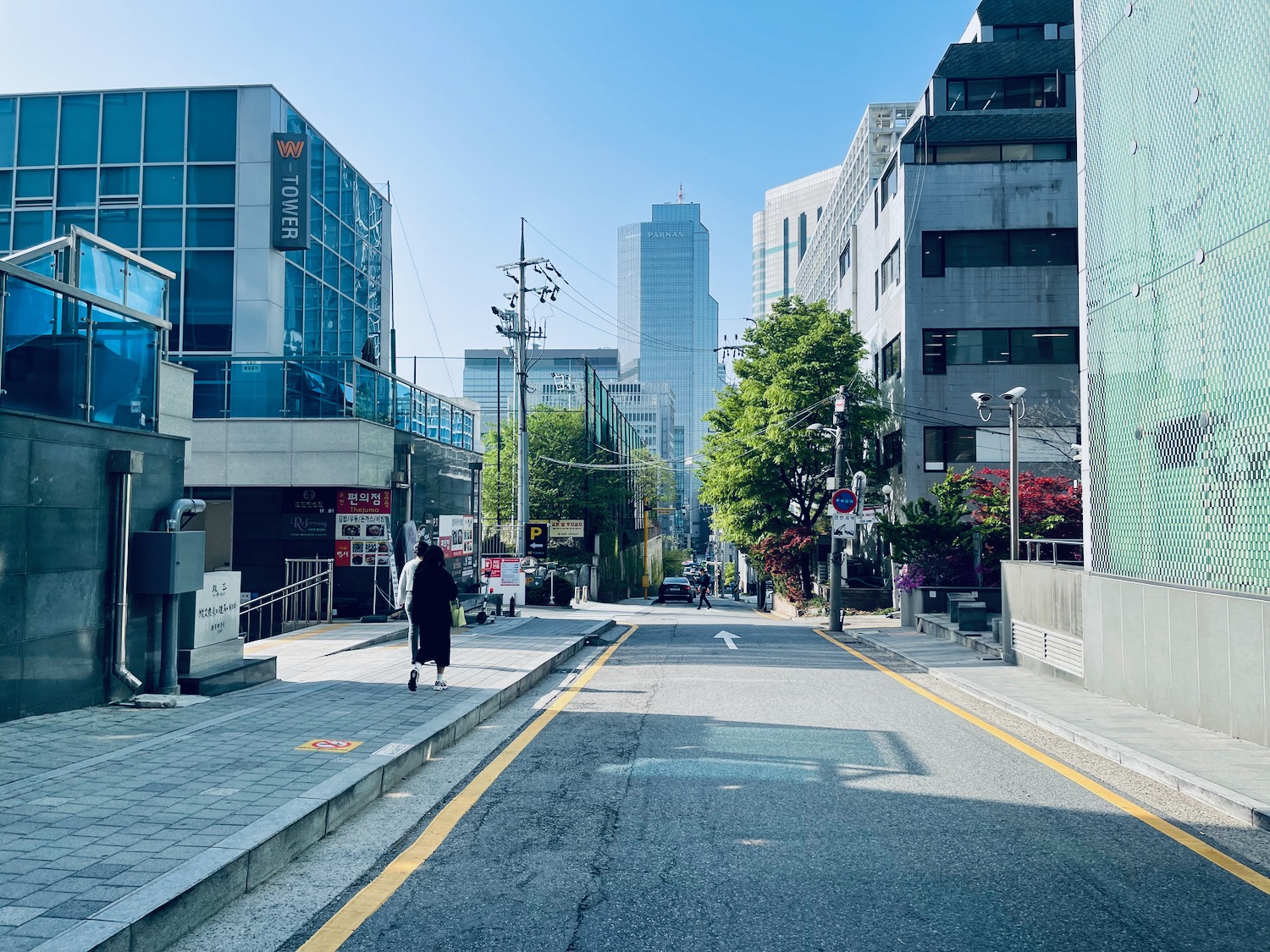
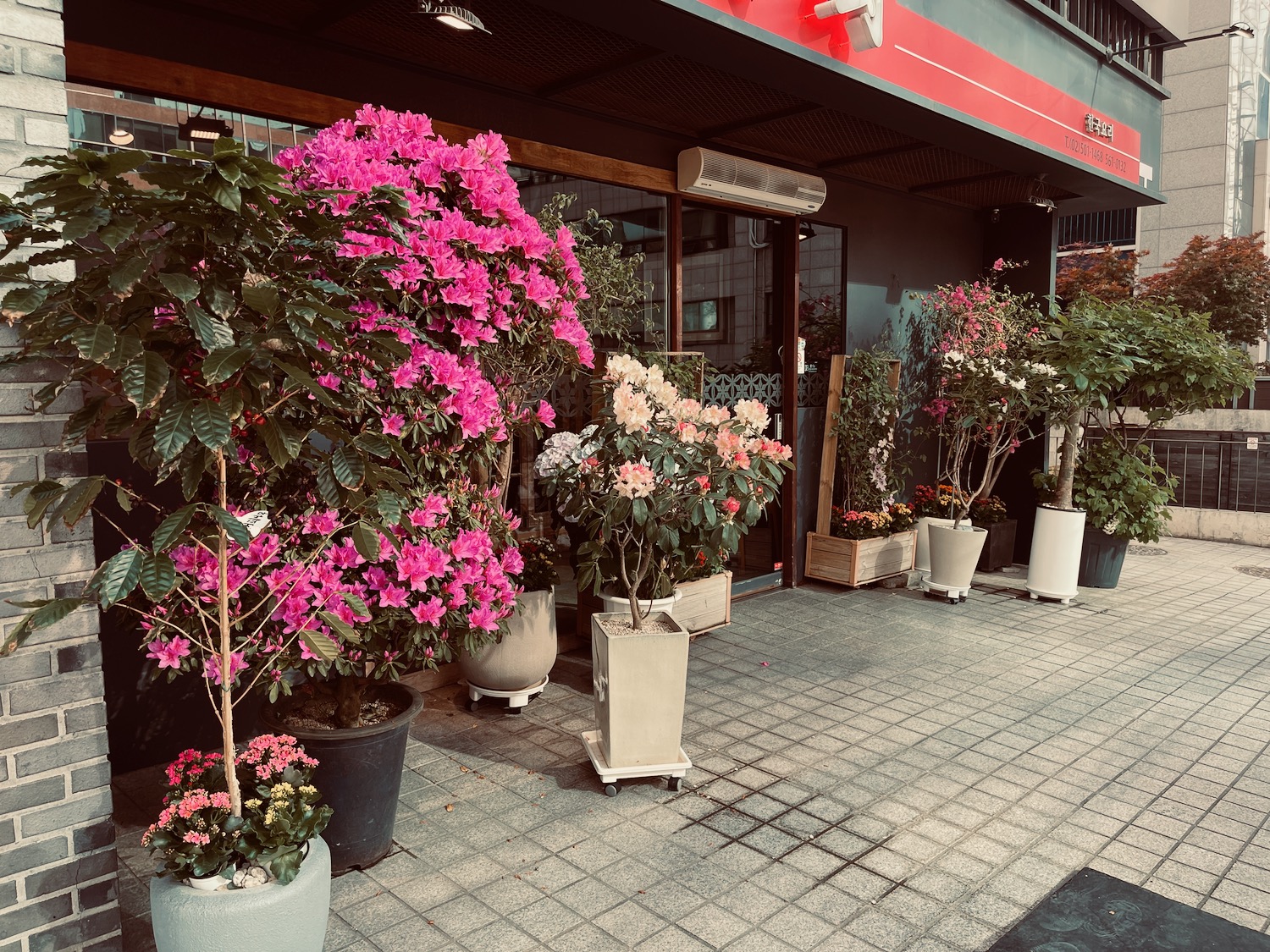
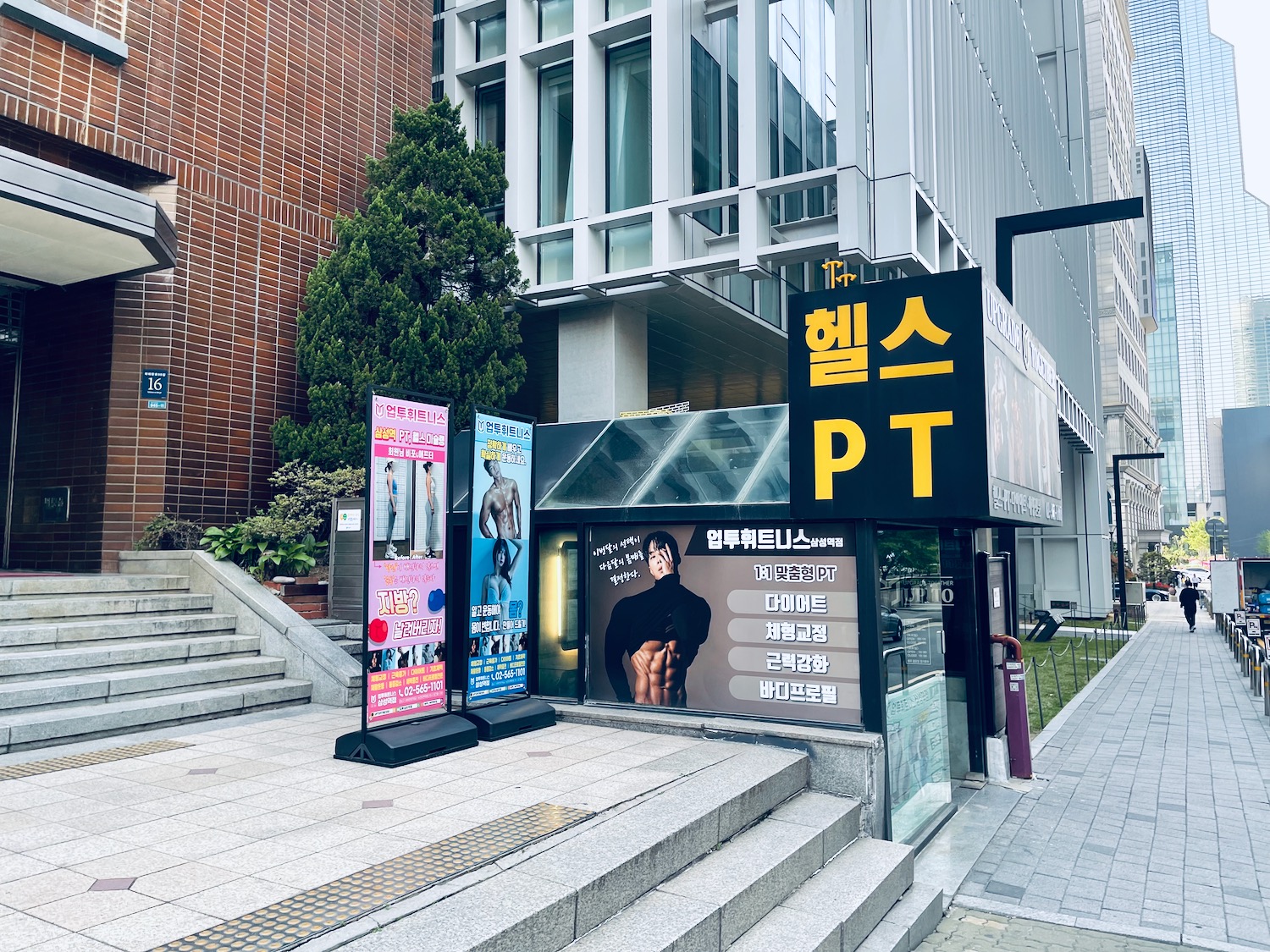
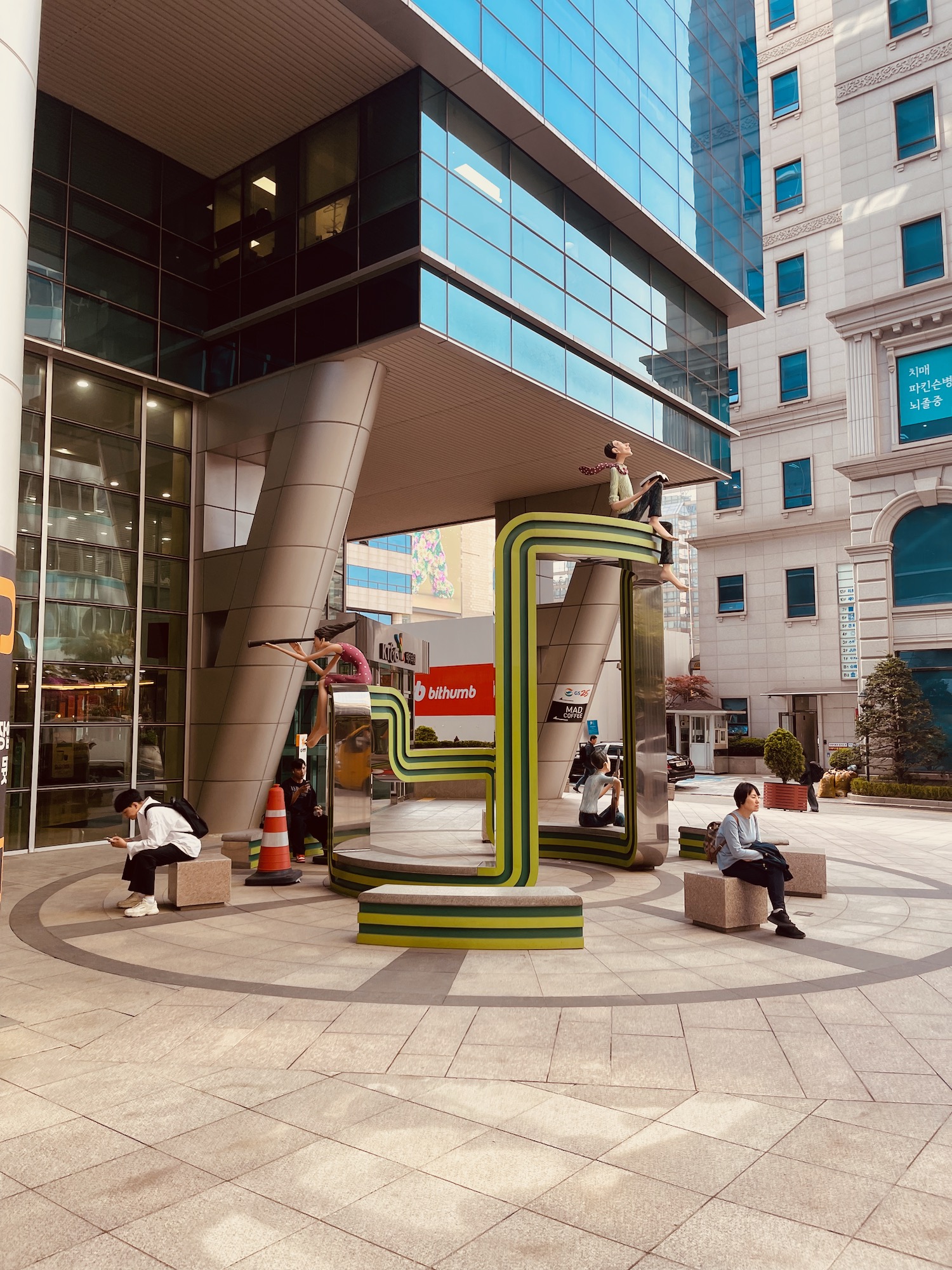
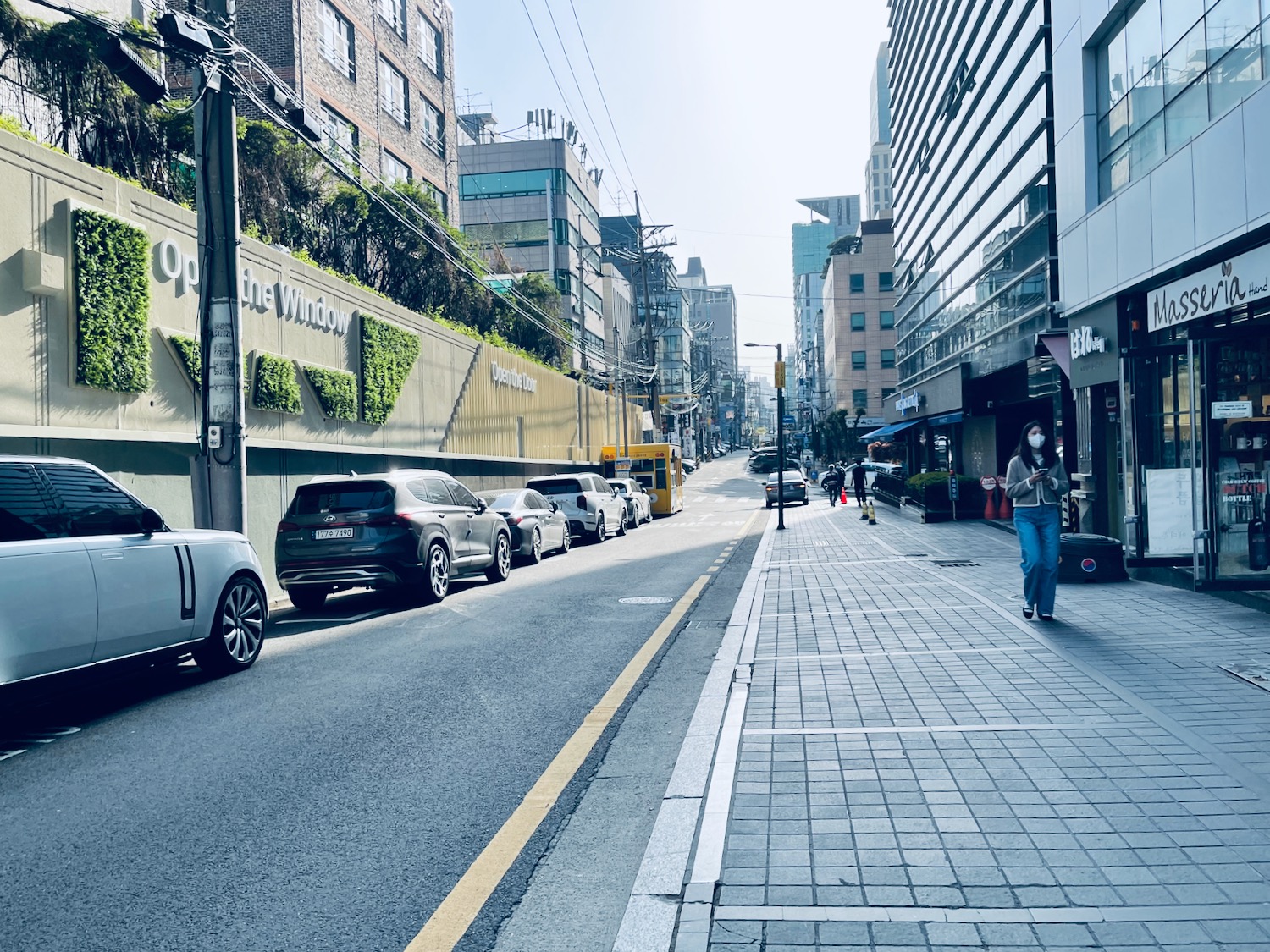
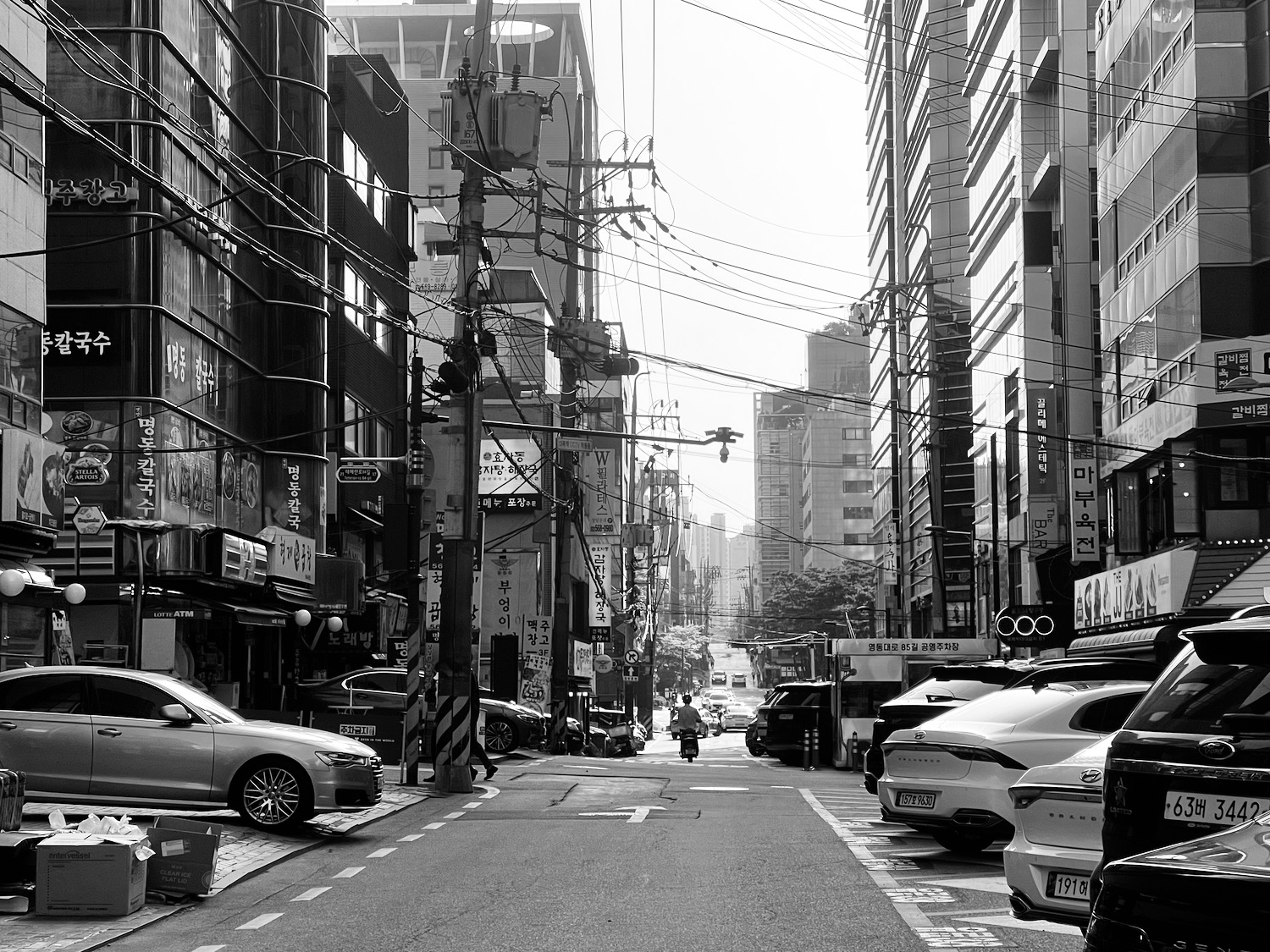
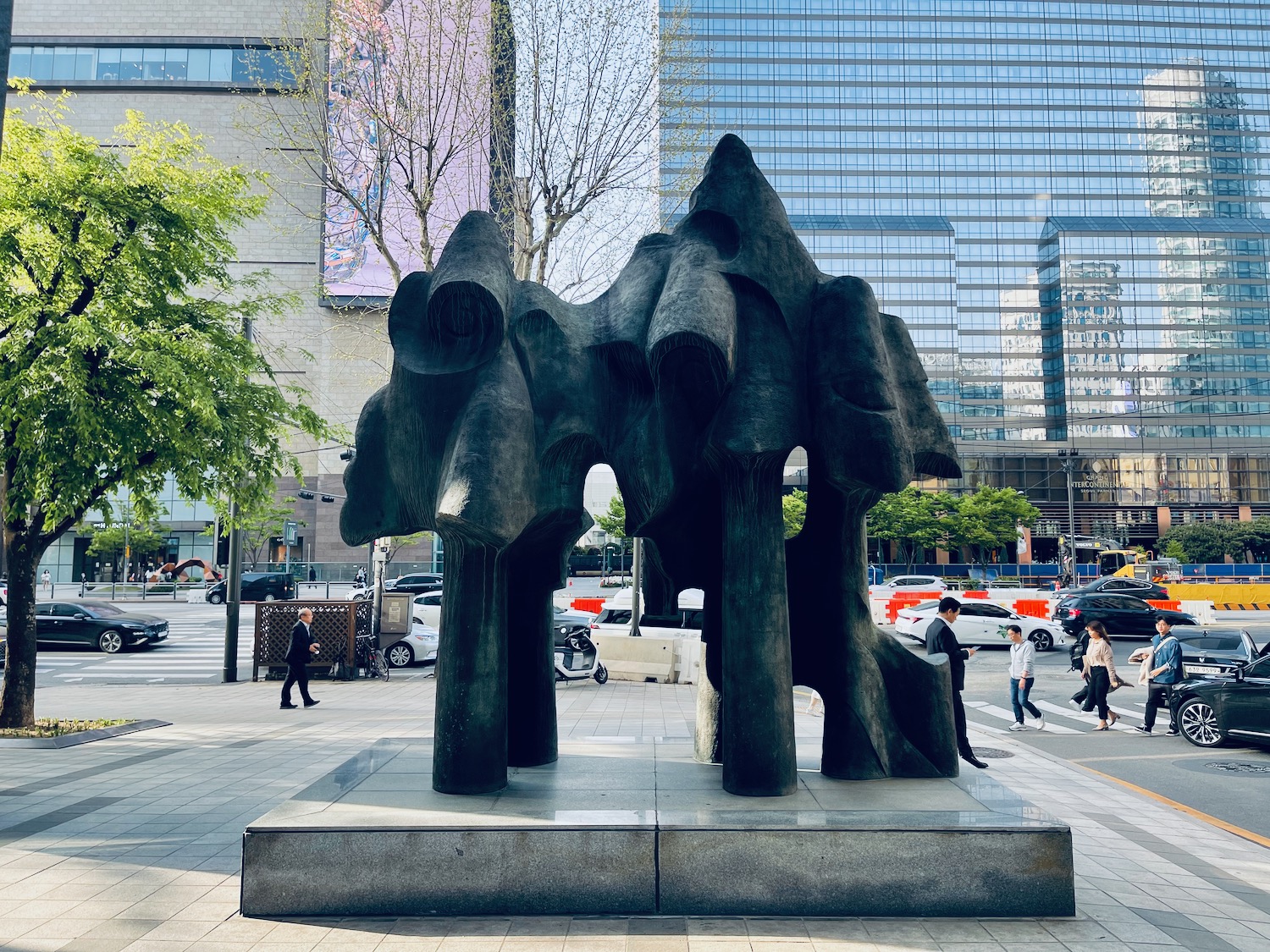
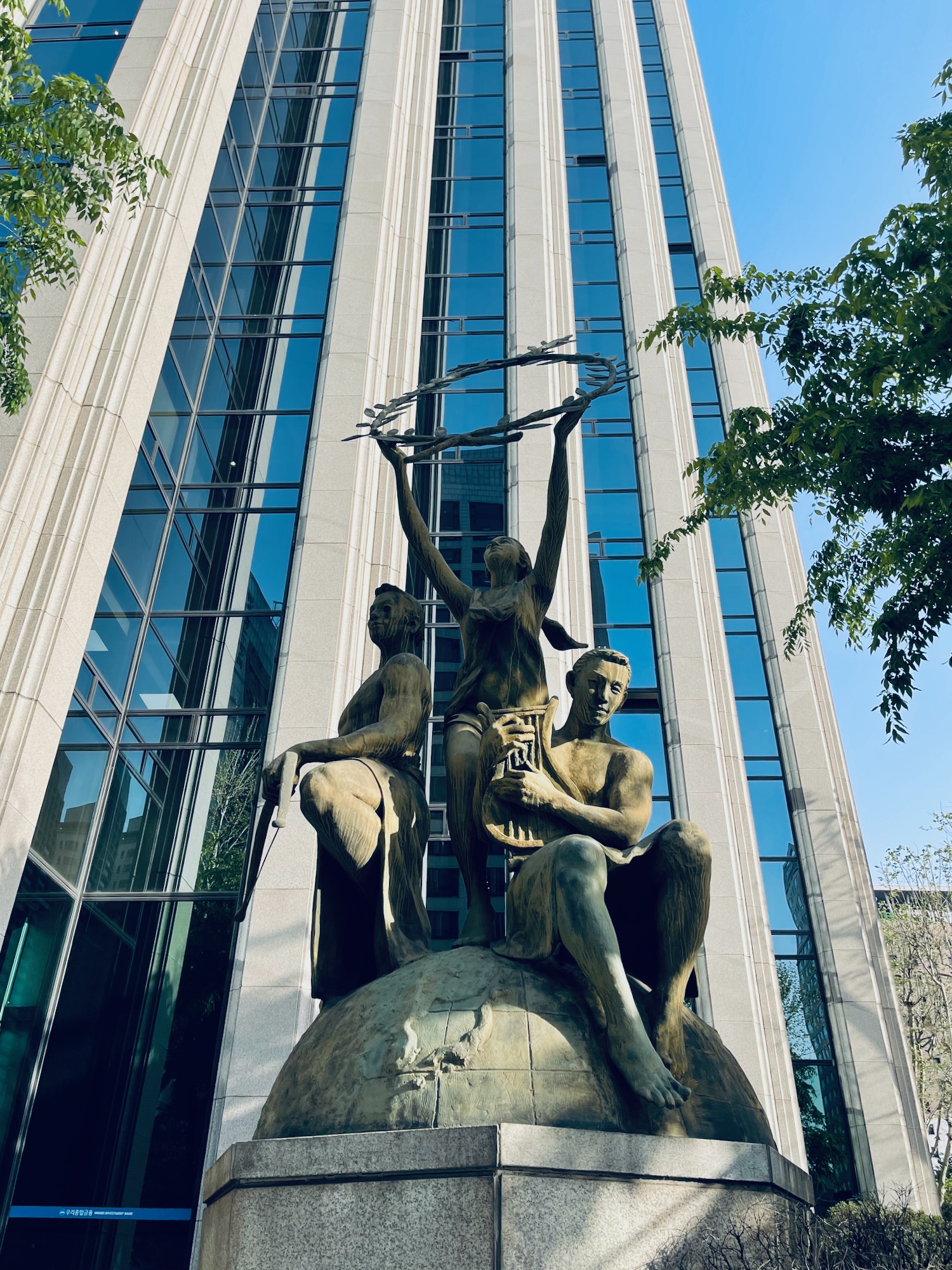
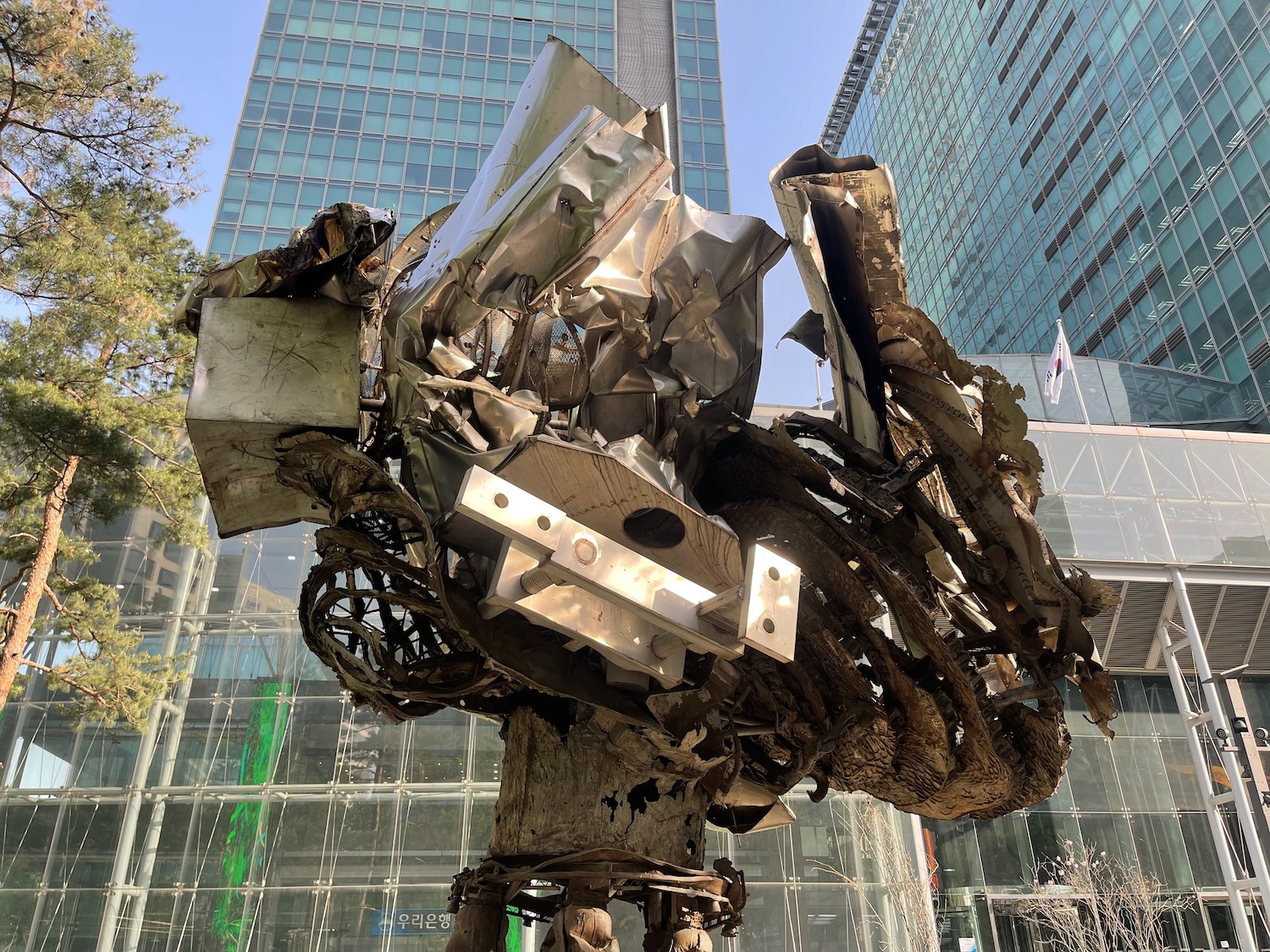
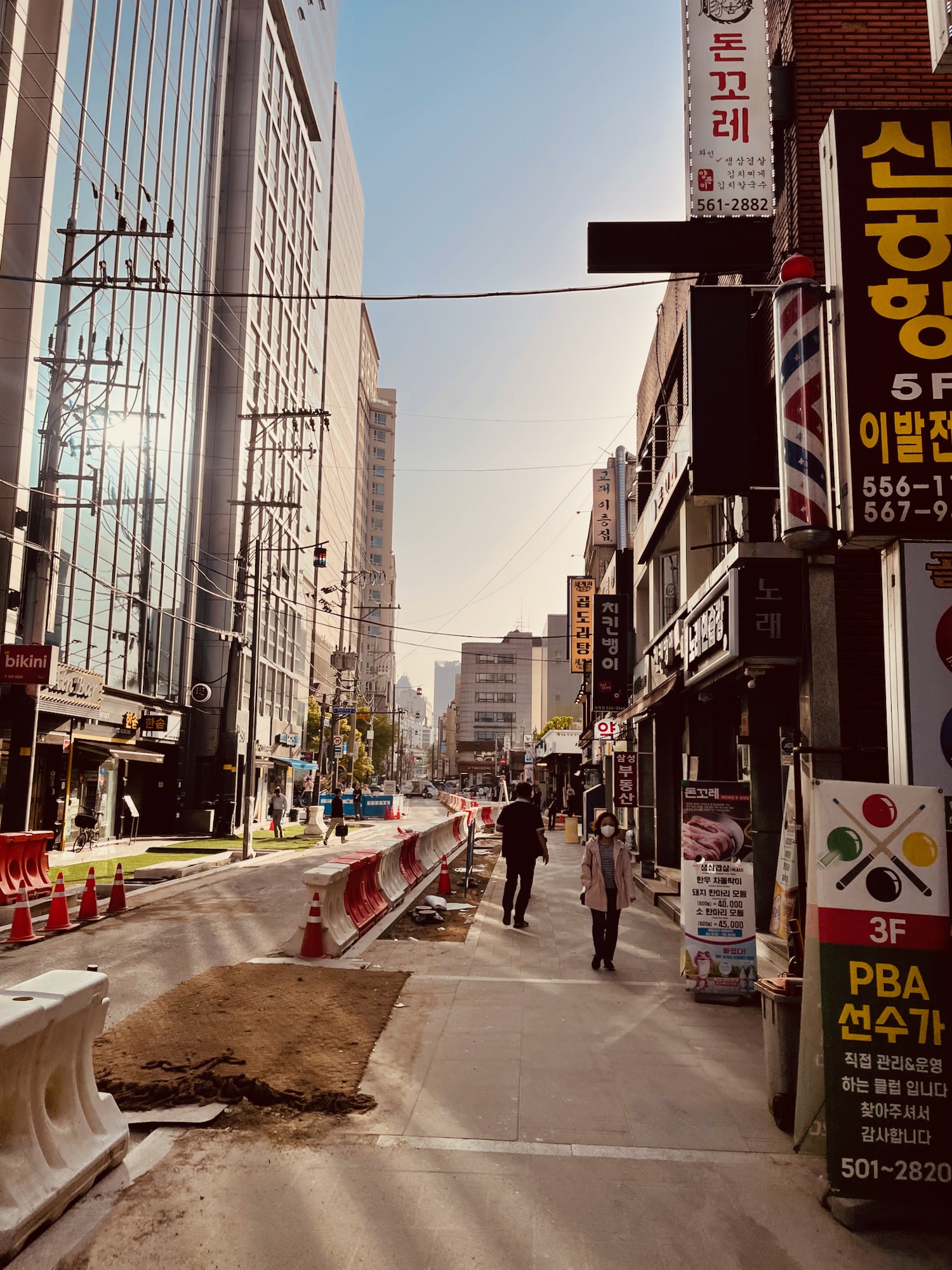
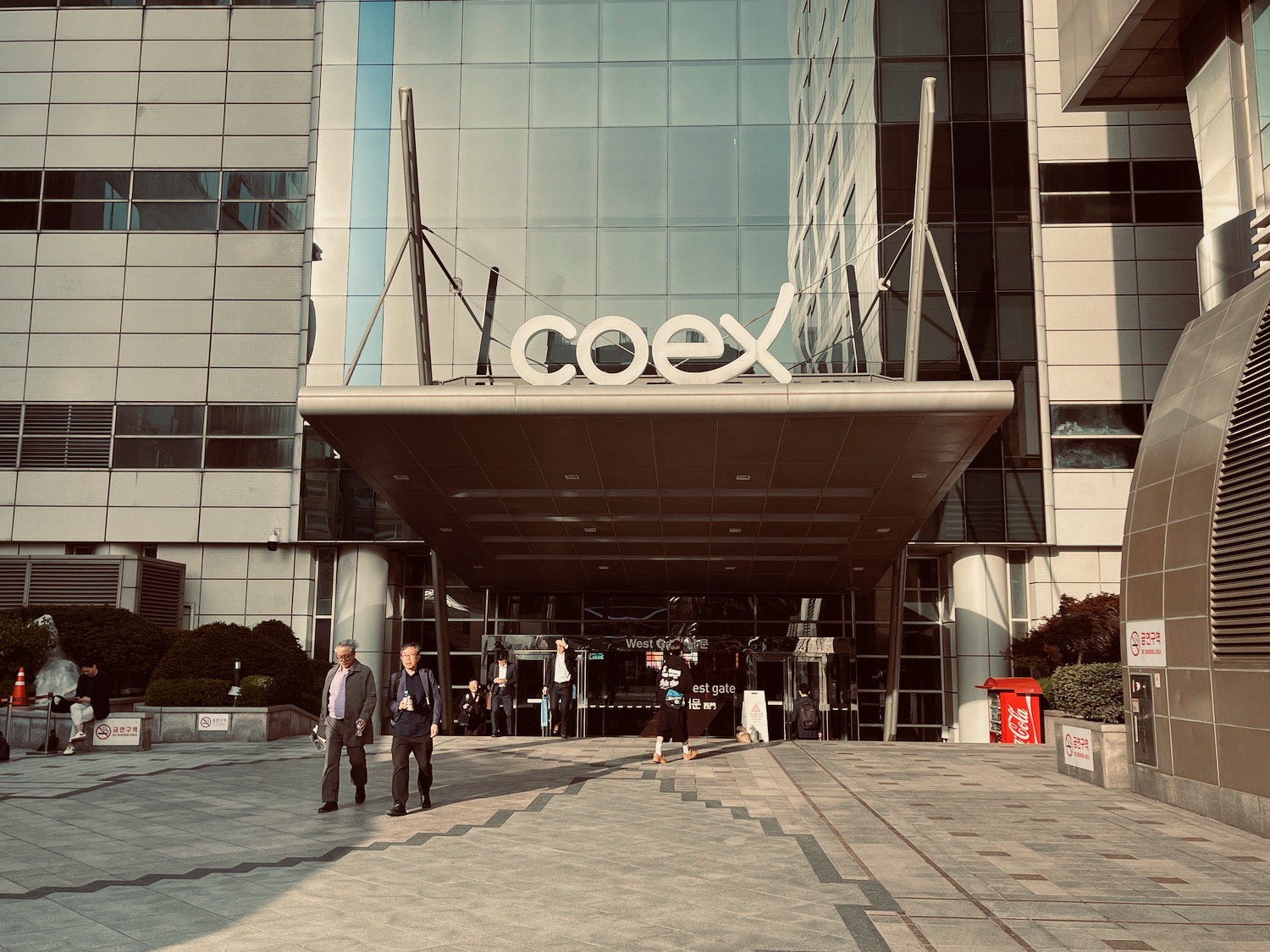
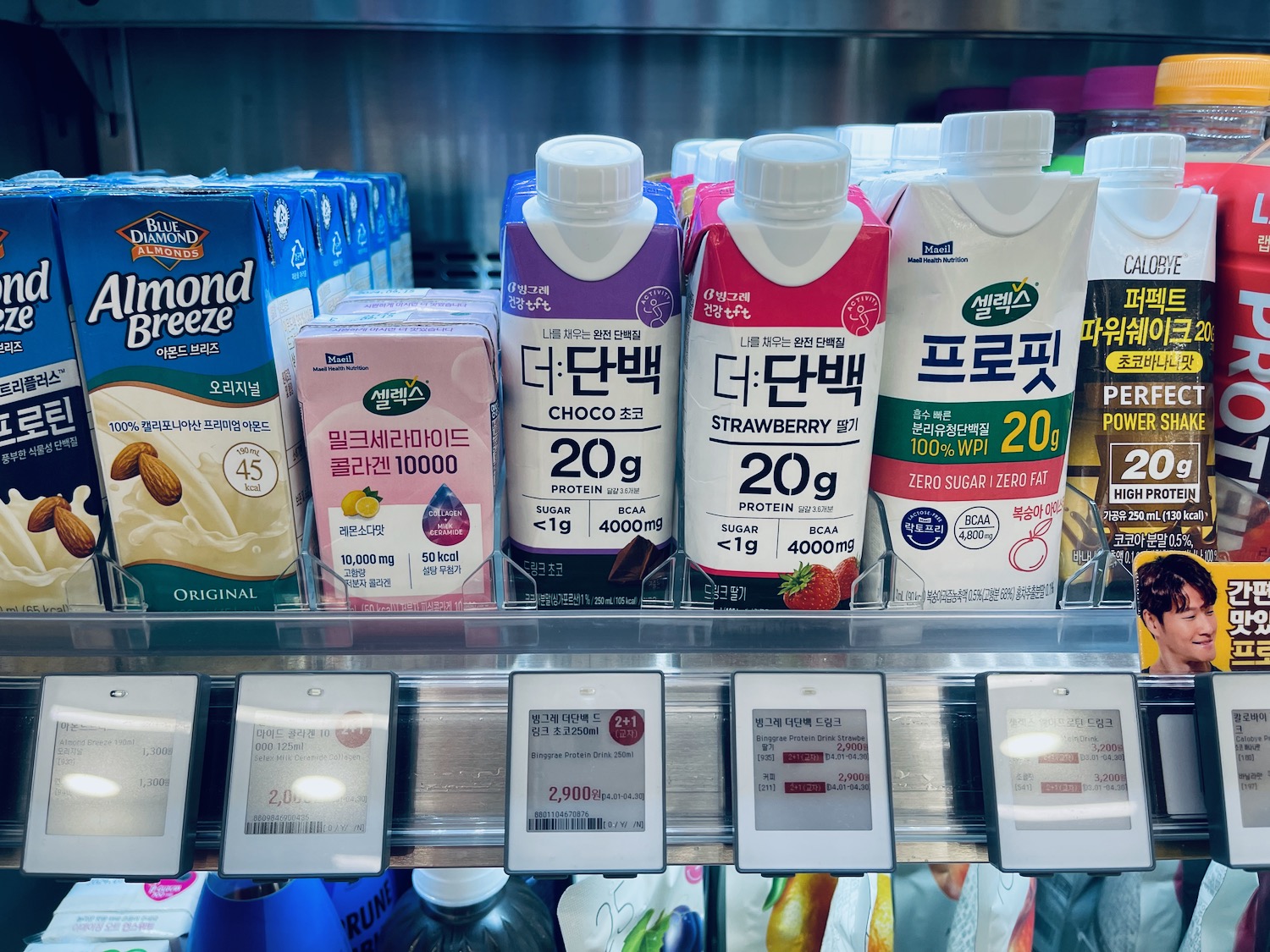
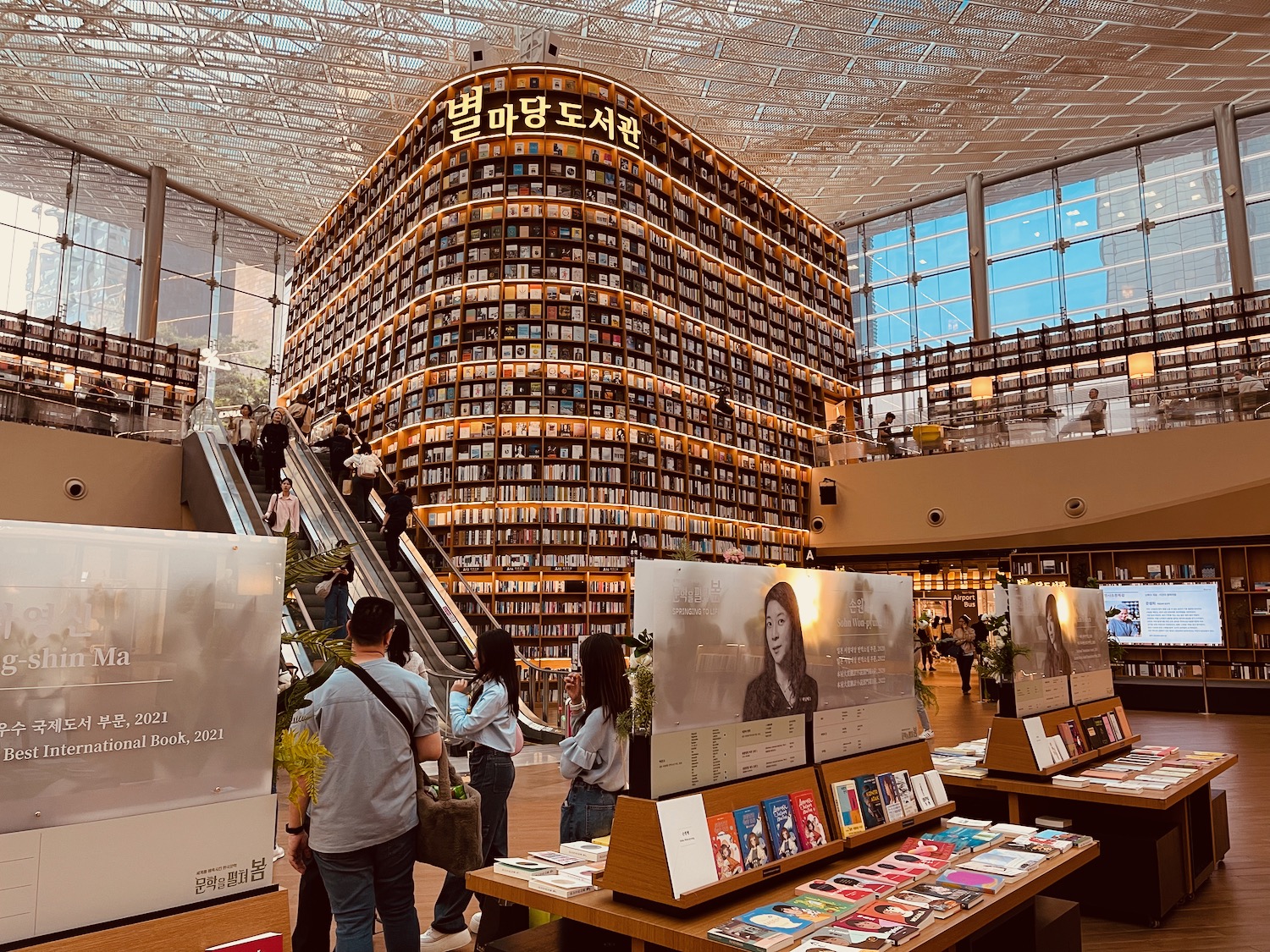
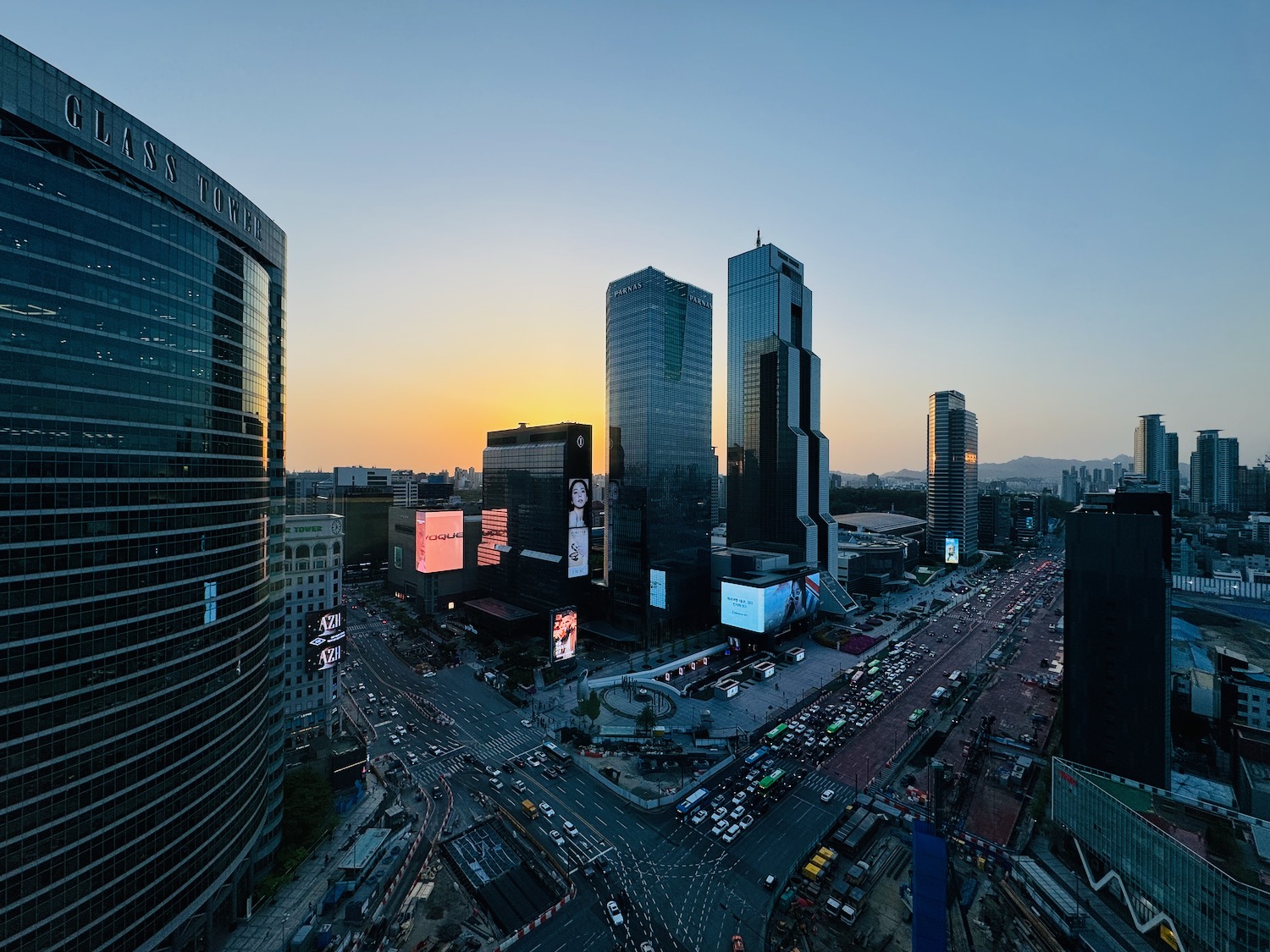
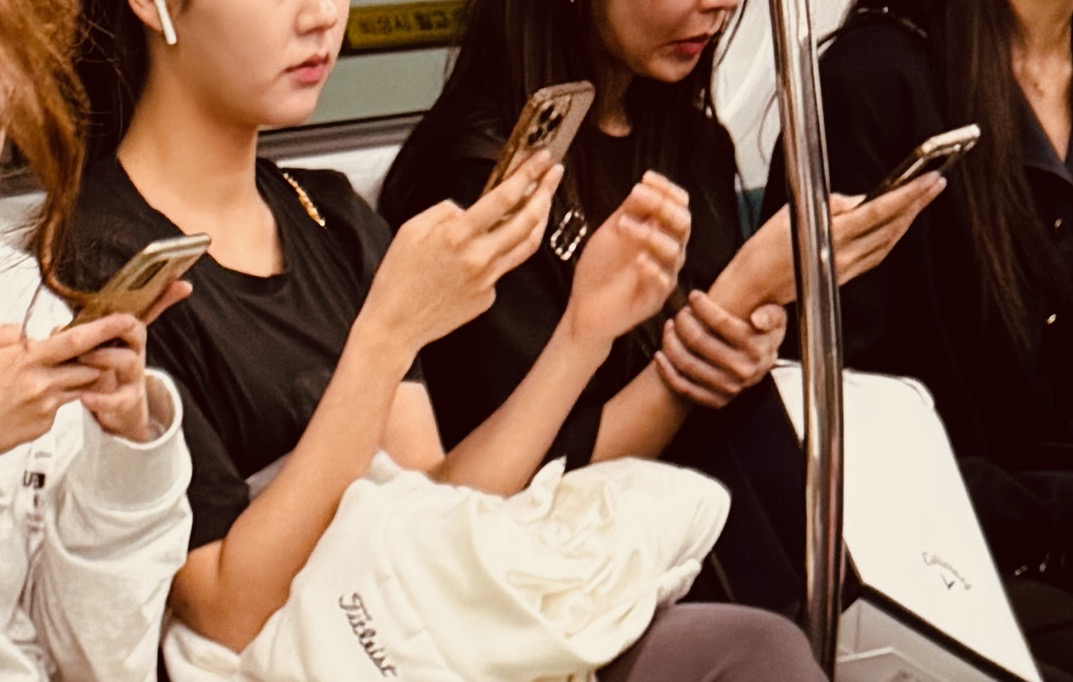
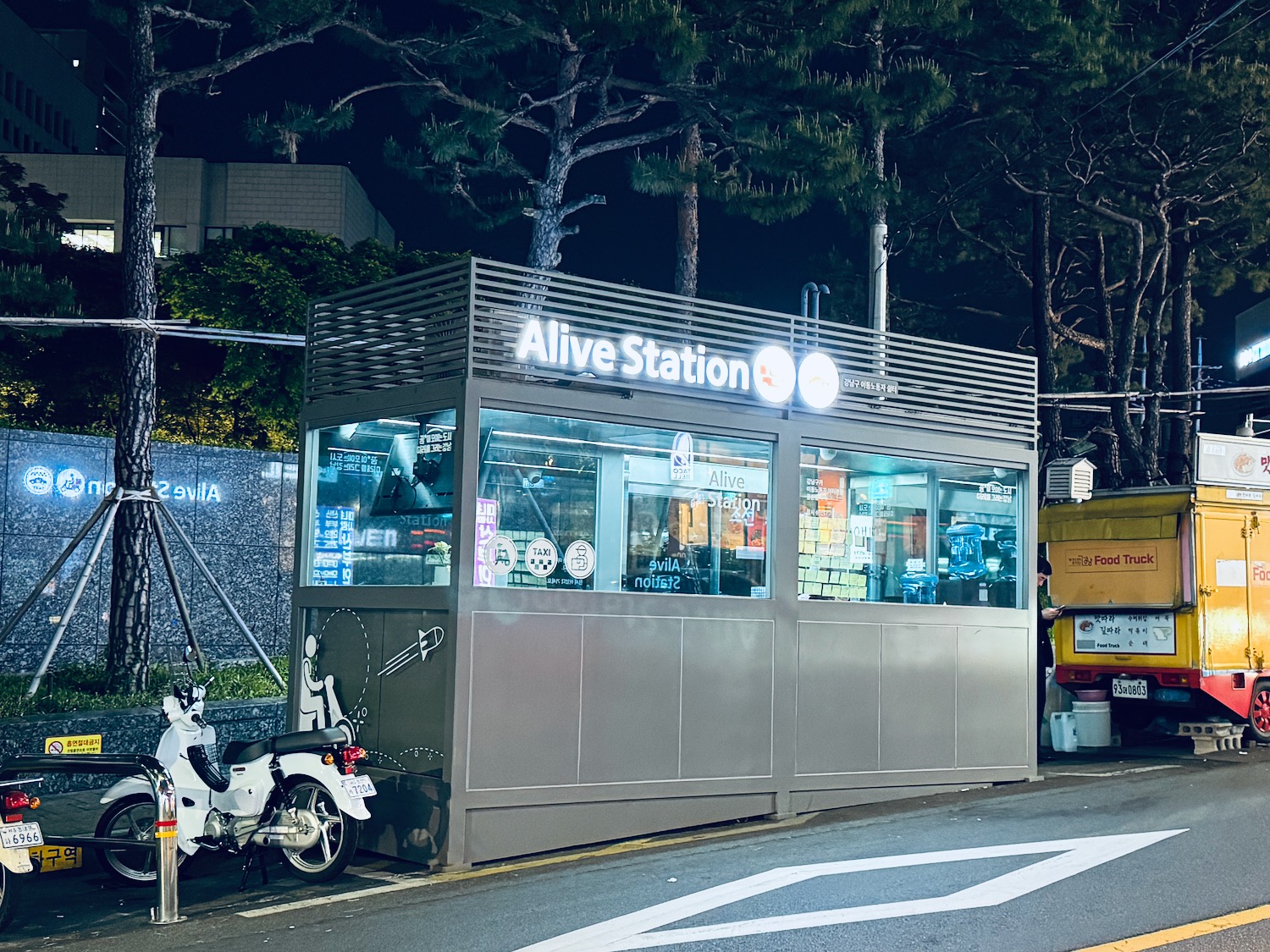
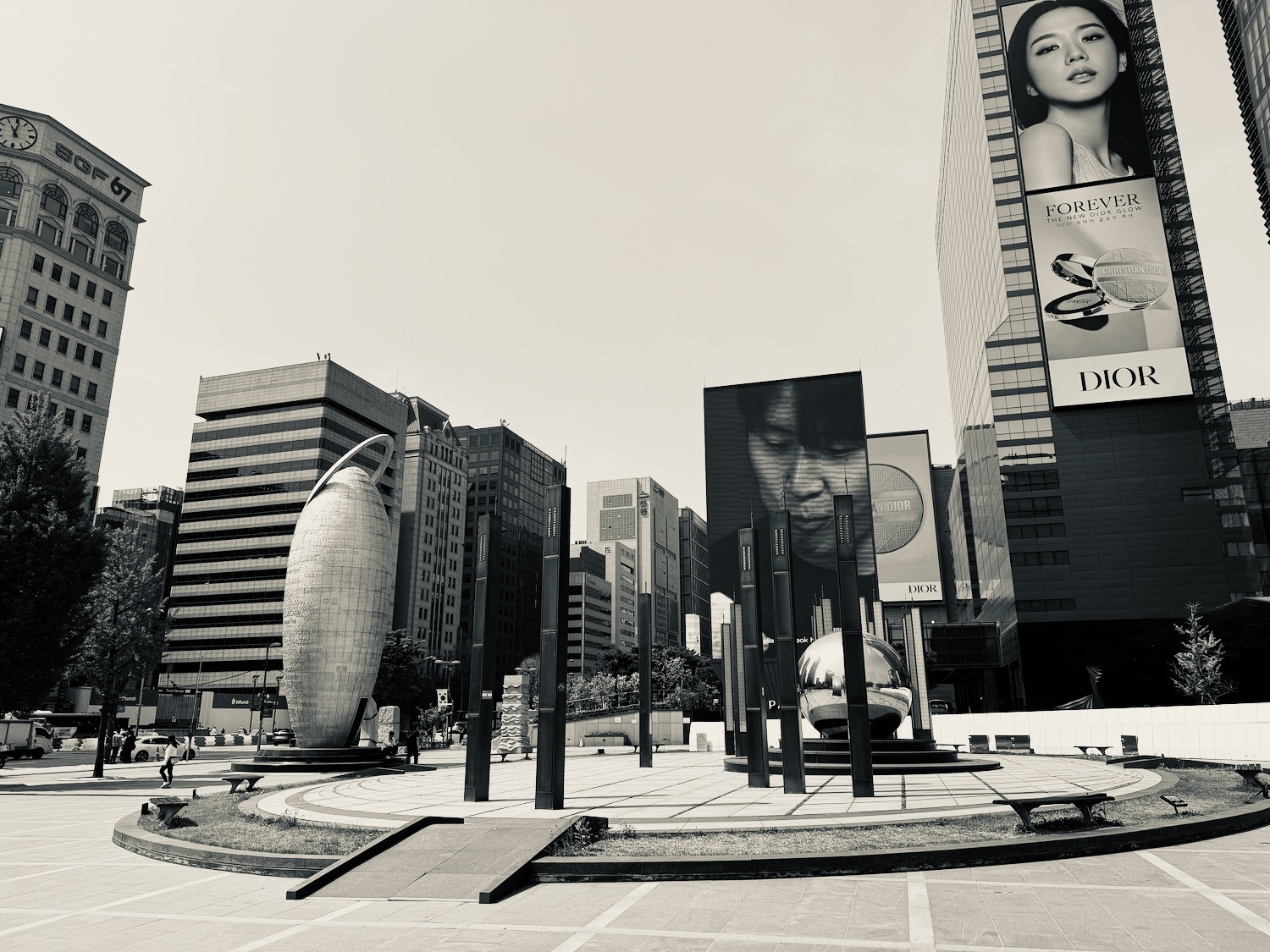
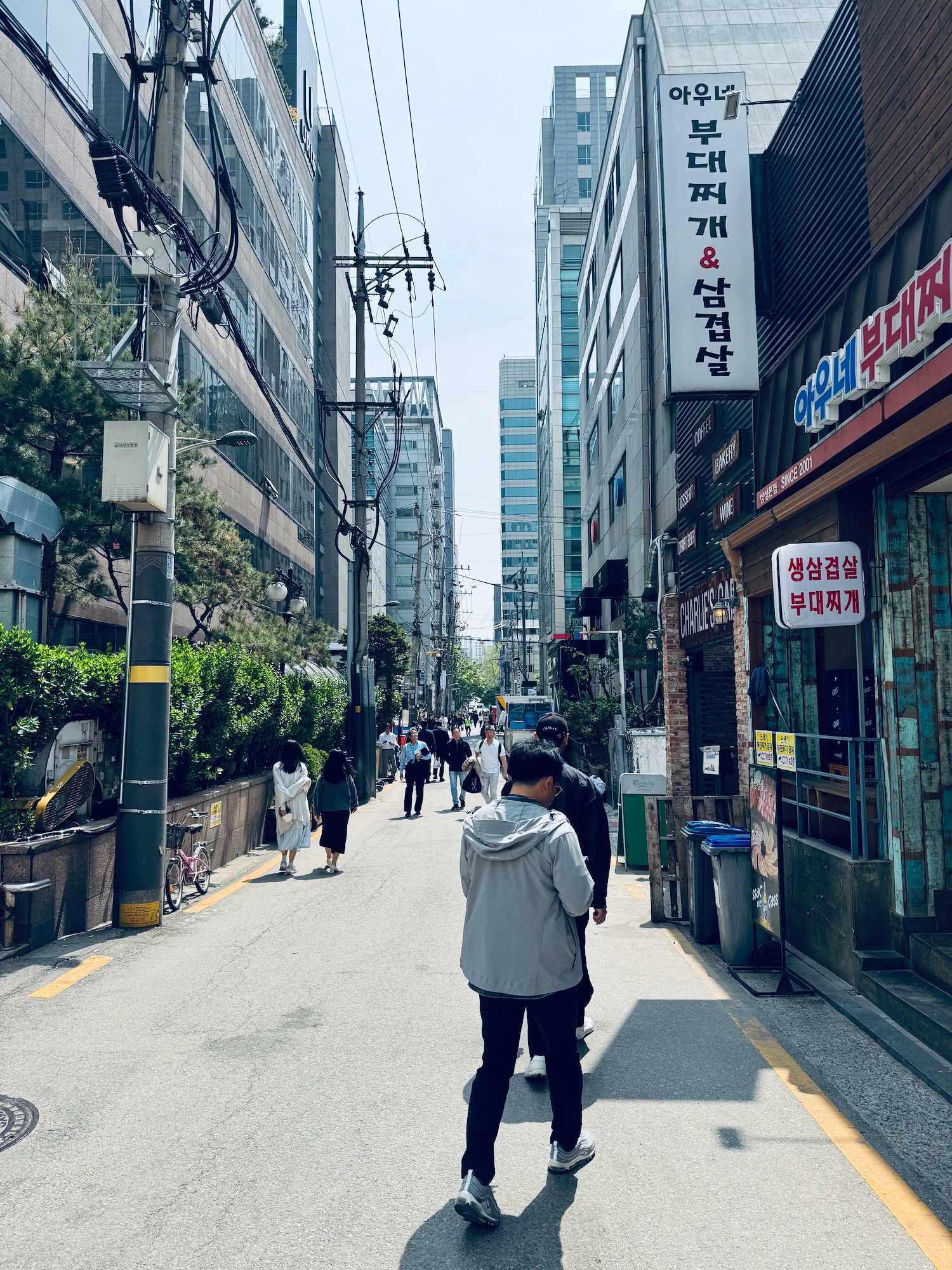
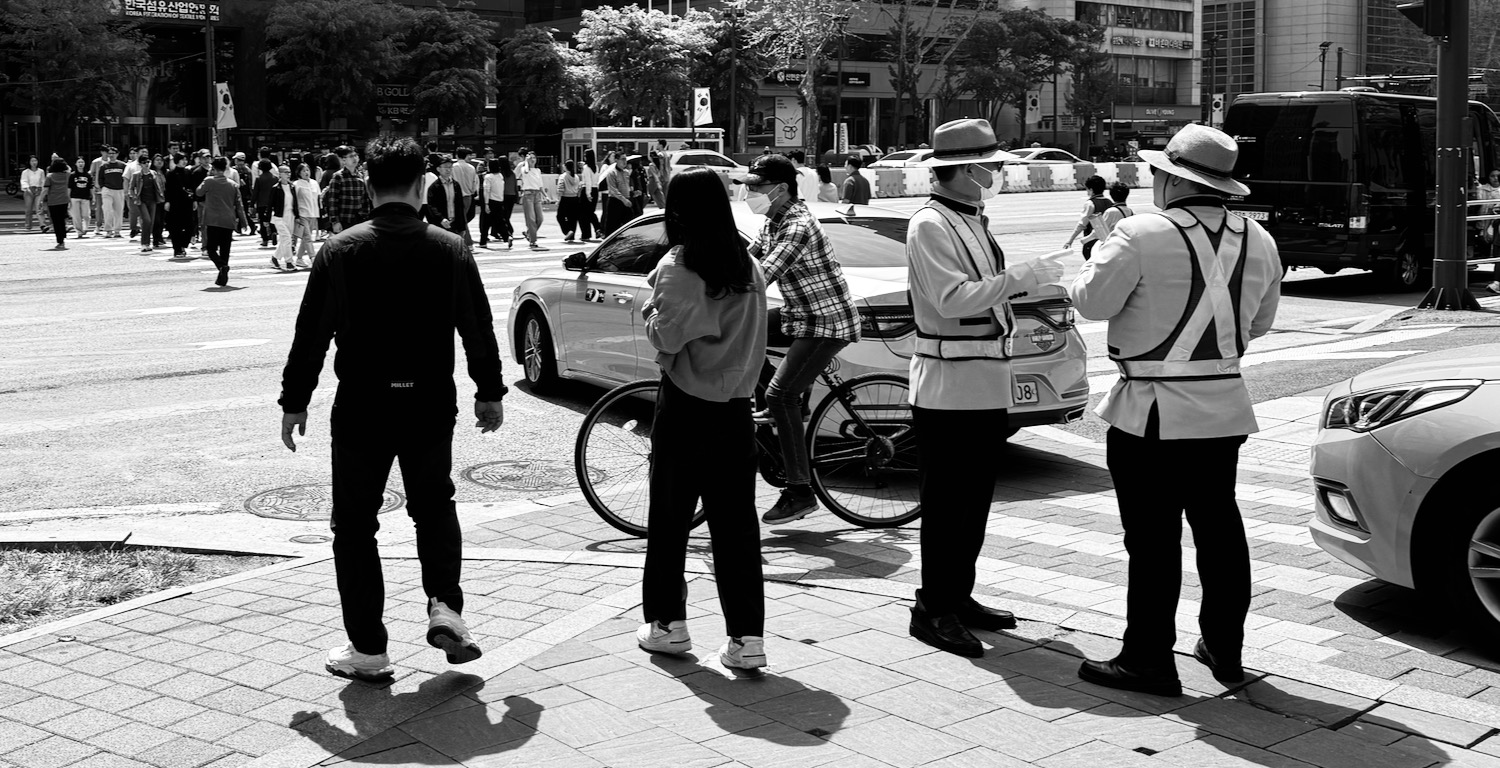
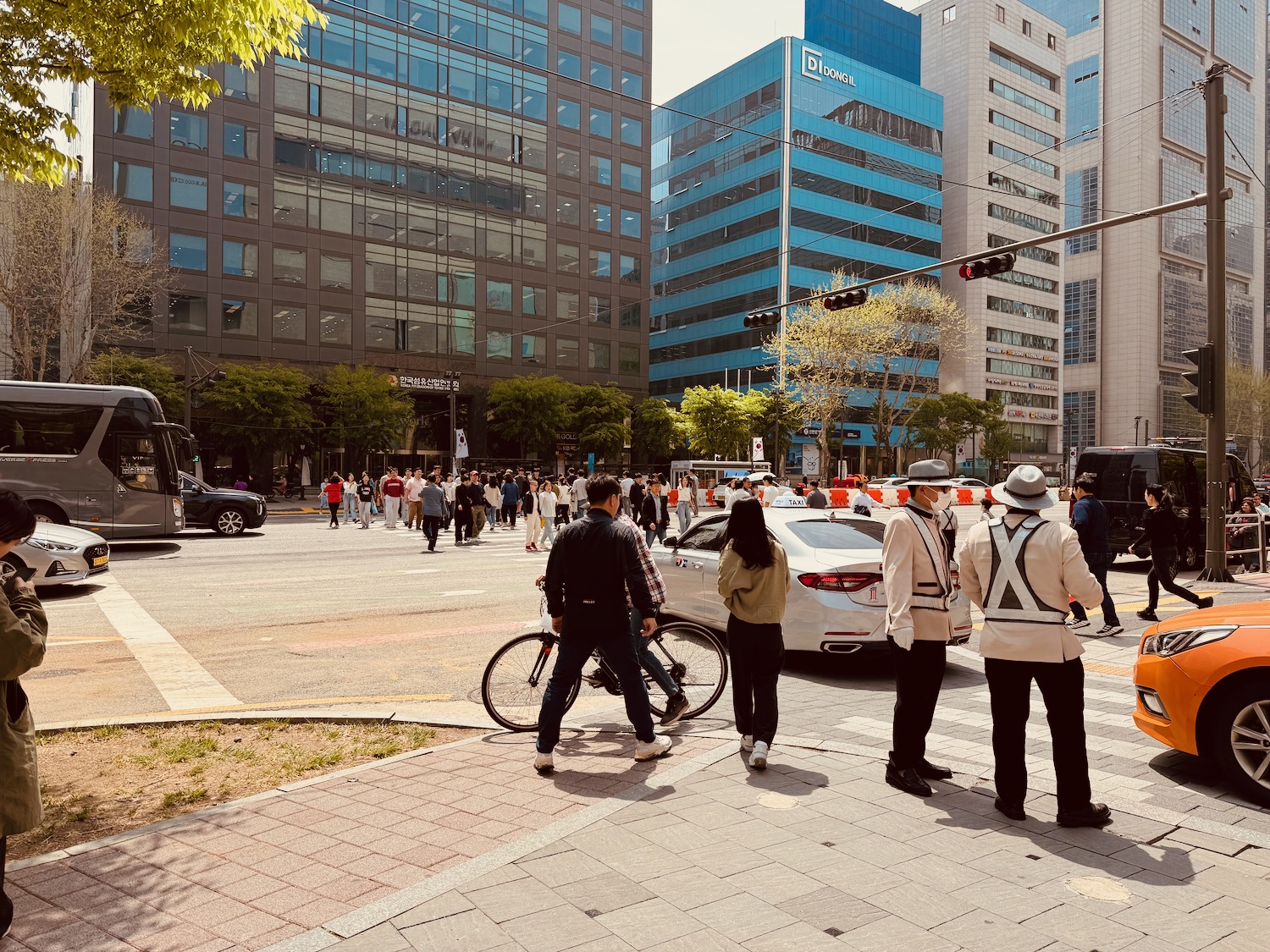
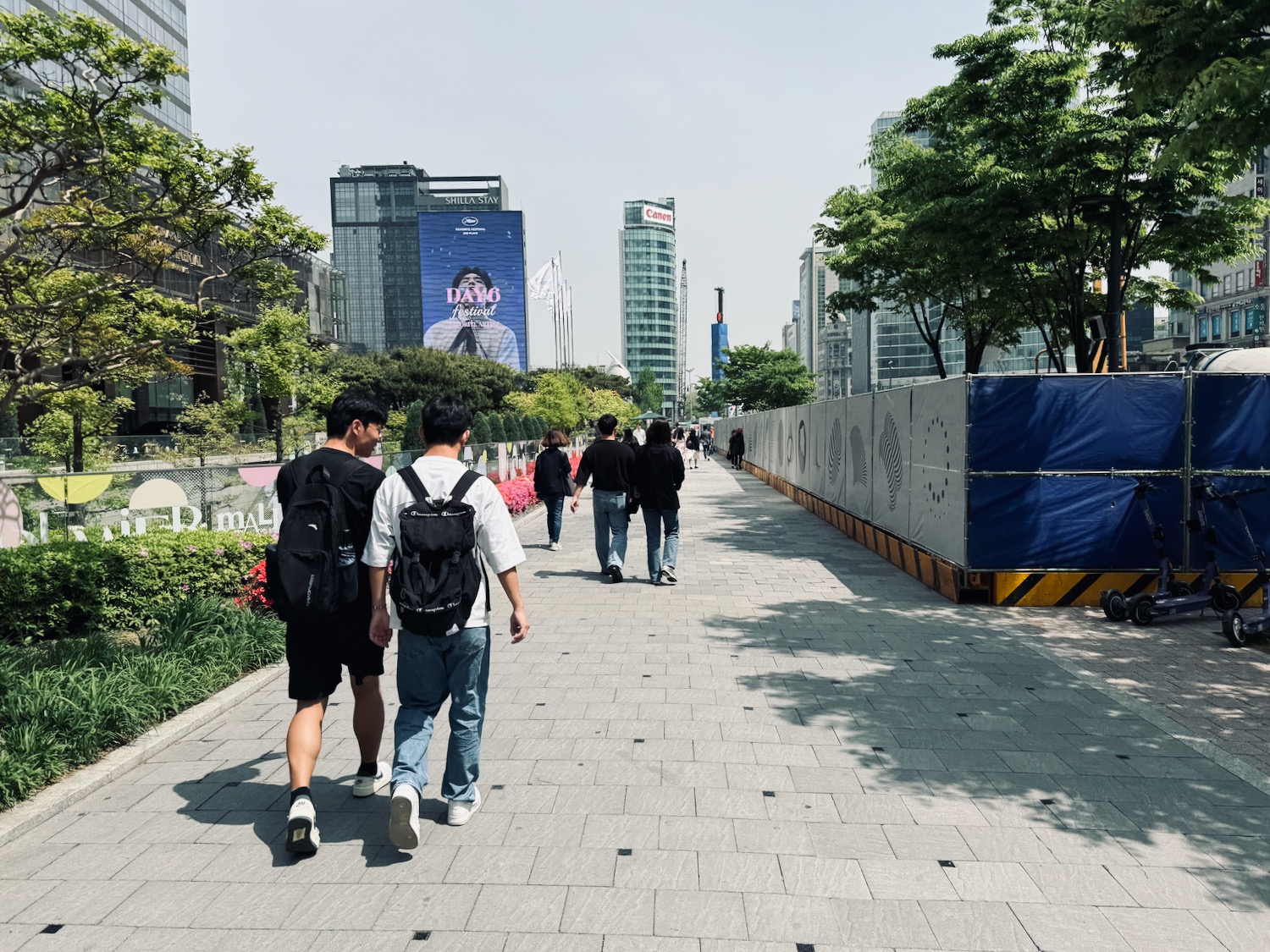

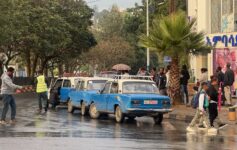
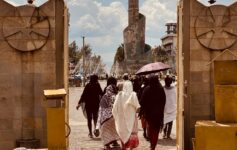

I’m glad you enjoyed your time in South Korea.
As a Korean myself, I advise you to not take any photograph in the subway car. Don’t ever do that again. You could have been in a huge trouble..
In South Korea, taking photos of strangers without their permission is not recommendable, and it’s even illegal in some places such as in the subway car.
It’s generally accepted outdoors like in the street or in Gyeongbokgung Palace, however, subway or bus is not regarded “outdoors.”
You took photos of people in the subway car and their faces are recognizable, then they can technically accuse you.
I think it’s similar in Japan as well. When you travel in East Asia, be careful when taking photos.
You can take photos in Seoul but you can not post them publicly without the subject’s permission.
“I simply cannot understand the marginal benefit of wearing masks outside”
I can see the benefit. I got Covid from outdoor dining with a friend in a deserted courtyard eating take out food. That was when I was staying home for several days before and after. The other person got Covid the day after the meeting and I got it 3 days after the meeting. All outdoors.
The pandemic is not over. Covid is at high levels in 27 states and 3 Canadian provinces now (late summer). Long covid still happens. Death should not be the only criteria one looks at though people still die, just not at a rate of a million or a couple of hundred of thousand a year in the US
derek, agreed. I contracted covid in a huge nearly empty hanger. And while the respiratory symptoms were mild, the exhaustion was debilitating for weeks. Almost three months later I still have no sense of smell or taste. None. I never would have imagined the impact this has caused. Yes I am alive but my life has changed.
Only people that get Covid today are the ones who get tested.
Because if it doesn’t happen to you it’s not real?
Masks in Asia are related to culture and pollution. In Japan, taxi drivers wear masks and gloves which a Japanese friend told me is to protect the customers as the driver wants them to feel comfortable. That’s nice if true. Back in the day I spent a lot of time in Vietnam and people wore masks because of the pollution. Motorbikes everywhere and I remember someone removing their mask at the end of the day and you could see their faces all dirty and a clean area where the mask was. Now here, masks are still used by people that got mentally ill after the pandemic brainwashing. Other day I saw a lady working at the supermarket wearing a mask. Suddenly a customer approached her to ask a question and she removed her mask while in very close contact with the customer since was easier for her to communicate with him. What’s the point of the mask then? Insanity.
“Masks in Asia are related to culture and pollution.” Depends – many Asian people wore masks before the pandemic; part of it had to do with if someone had a cold or thought they might get one. And yes police and other outdoor workers often wore masks due to the pollution.
“Now here, masks are still used by people that got mentally ill after the pandemic brainwashing.” Give it a break; you’re generalizing and also speaking poorly about an entire population of multiple Asian countries.
In South Korea currently, for example, the government is mostly in hands-off mode, saying each person is responsible for their own safety, etc. One of the side effects is many employees cannot take a day off w/o pay; during the pandemic, they could stay home if they had symptoms (quarantine, if you’d like), but not lose pay. Now, the press reports numerous stories of office and other employees going to work sick with Covid symptoms, because they can’t afford time off. Covid tests for purchase are often sold out, so there’s that, too.
Covid is real; I had it in July and it’s no joke.
I agree that outside masks are probably unnecessary.
@JRG: “Give it a break; you’re generalizing and also speaking poorly about an entire population of multiple Asian countries.” What???? I am speaking about the US. Go to a Trader Joes or Whole Foods and you will see ton of snowflakes in their mid 20’s wearing cloth masks with Mickey Mouse on it. These people are mentally ill.
Masks in Asia have been worn for years as a polite gesture. If people want to wear them in TJs or whole foods that is their choice.
No thanks.
Regarding masks, I think it’s partly being considerate, but wearing it outside is purely sun protection i believe.
If you are still wearing a mask in 2024, and are not old, overweight, and/or have systemic health issues — you have borderline psychosis / delusion. Sorry, not sorry. It’s a fact. Wake up, sheep!
Nonsense. I also wouldn’t wear a mask outside, or in a large open-plan office, but there’s every reason to mitigate the risk of catching something when bunched up in close quarters with a lot of other people (e.g. when queuing for passport control). It doesn’t have to be COVID and/or anything serious – losing 3-4 days of a week-long intercontinental trip to a cold is more than bad enough.
Koreans and Japanese have been wearing masks for decades, well before COVID even existed. They also have the longest average life expectancy in the world. It has nothing to do about being “sheeps” and has been embedded in their culture for quite awhile now.
I’m headed to Seoul on a RTW trip in November (for a whole 2 days this time!!!). Are all the DMZ tours suspended, or just the ones that visit the Line of Control room?
Just the JSA tours.
In East Asian countries, it is common for women to wear masks because they don’t have make up on. They are very conscious about their appearance.
Nice post Matthew. I am a little surprised you do not have any pictures of the Bongeunsa complex just on the other side of CoEx mall. That Starlight library inside CoEx can be a zoo, or zoo-like most of the times, overran with tourists with no intent of using the library as it was intended. We saw a pair of K-Pop idols followed by tons of paparazzi while eating at one of CoEx restaurant – another zoo-like atmosphere.
Seoul is also quite diverse. The Gangnam is the glitzy area, Tokyo-like in vibes. But the Namsan area, where the Grand Hyatt is, would be totally different.
Never like that Park Hyatt area though. Very transactional IMO, even towards Globalist. We got much better treatments at the Grand Hyatt.
Koreans also wear masks to avoid yellow dust.
Along with the Japanese, it’s also courteous to wear a mask when one is sick or is trying to avoid getting sick.
I lived in Korea during COVID and during the 2 years of wearing a mask everywhere, I didn’t get a cold or feel sick at all. While I can’t “prove” that was due to wearing a mask, it’s quite remarkable to go a 2 year period without getting sick once. And I even worked in a school teaching kids but we were all wearing masks.
Anyways, Koreans and Japanese have been wearing masks for decades, and there’s definitely some merit to it considering how healthy they are and how they have the longest average life expectancy in the world.